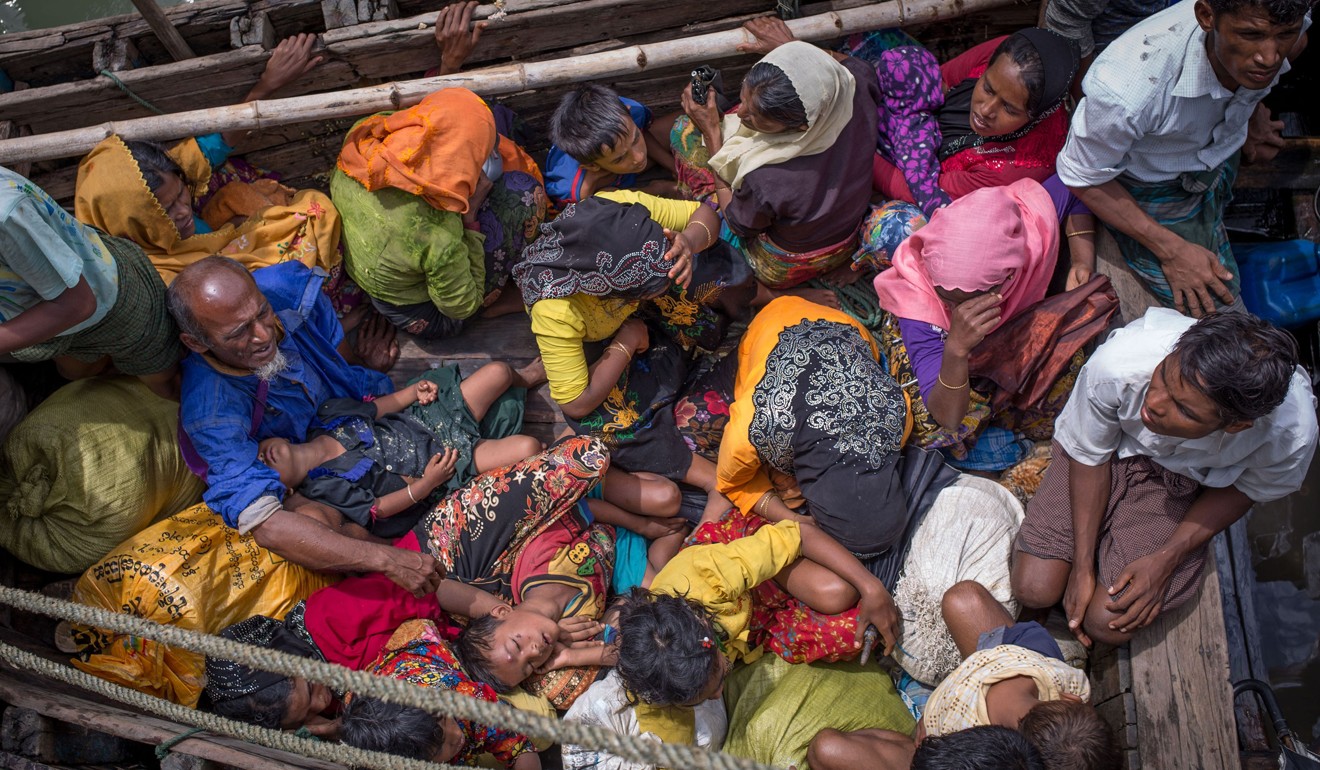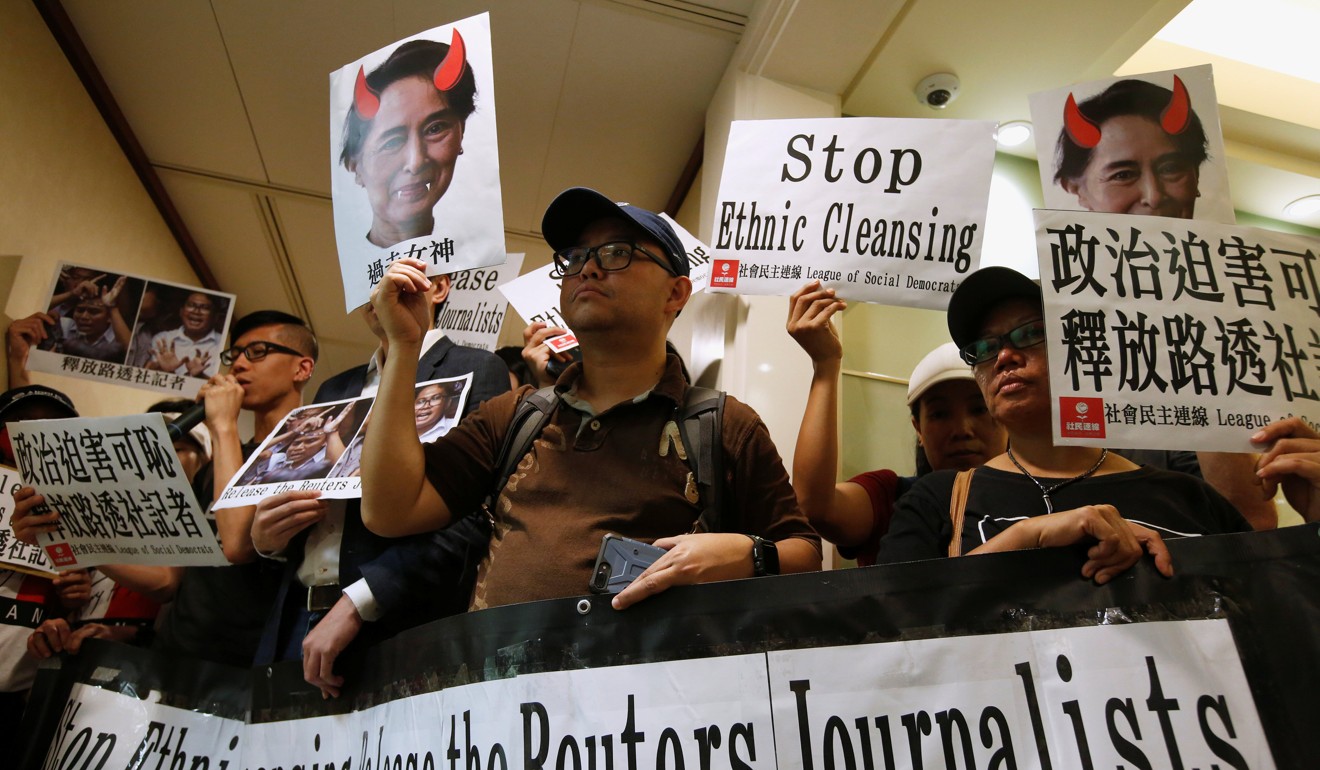
Myanmar welcomes Bangladesh plan to start Rohingya repatriation
Move comes as government spokesman vows to no longer answer phone calls from media after International Criminal Court rules it has jurisdiction to investigate crimes against Rohingya
Speaking to reporters in the country’s administrative capital Naypyidaw at a regular press briefing, government spokesman Zaw Htay, citing Bangladeshi foreign minister Abul Hassan Mahmood Ali’s comments Wednesday, said the move was “very much welcomed” by Myanmar.
“We have always been hoping for this (beginning of repatriation) and I believe the rest of the process will go smoothly after that,” said Zaw Htay, who is also director general of the president’s office. He added that such cooperation from Bangladesh would help the process move forward quickly.
Time to get tough with Myanmar again
On Wednesday, Ali, speaking to reporters after attending a seminar on the Rohingya crisis in the capital Dhaka, said the repatriation of the Rohingyas would start soon and his government was ready to send back over 3,000 refugees, according to Bangladeshi media reports.
Myanmar and Bangladesh agreed in November last year to repatriate Rohingya refugees from camps in Bangladesh’s Cox’s Bazaar to Rakhine State. But the process, originally planned to begin in January this year, has been delayed for various reasons since.

According to the United Nations refugee agency UNHCR, more than 720,000 Rohingya Muslims fled from Rakhine to neighbouring Bangladesh since the latest round of violence erupted in August last year.
They fled to escape a harsh crackdown launched by the Myanmar government in reprisal for attacks by an armed Rohingya faction against government security posts.
At the briefing Friday, spokesman Zaw Htay also said he would no longer answer phone calls from media, one day after the International Criminal Court (ICC) ruled it had jurisdiction to investigate crimes against the country’s Rohingya Muslim community.
Rohingya crisis: Myanmar’s Aung San Suu Kyi will keep Nobel Peace Prize despite UN ‘genocide’ report
The ICC flexed its muscles Thursday with its unprecedented ruling that it had the power to investigate the forced deportation of Rohingya to Bangladesh, even though Myanmar has not signed the statute underpinning the tribunal.
Myanmar has stonewalled in response to international criticism, barring journalists and diplomats from visiting the scene of the crackdown except on short, military-chaperoned trips.
Communication from authorities is also often slow and scarce, with only one official media spokesman for the entire government. Now even that channel of information is all but drying up.

“We won’t answer the phone in future,” Zaw Htay told reporters in the capital Naypyidaw Friday, adding that he will instead hold press conferences every one or two weeks.
Myanmar has previously rejected any possibility that the ICC could have any jurisdiction over the country.
Bangladesh is a signatory, however, and the judges said the deportation of the Rohingya amounted to a cross-border crime, thereby giving the court the right to pursue the issue further.
Dozens of Myanmar civil society groups condemn conviction of Reuters reporters
Its ruling means that the ICC’s chief prosecutor can now open a preliminary investigation that could lead to a wider probe and eventually a trial.
The ICC ruling followed international outrage triggered by the sentencing of two local Reuters journalists earlier this week for seven years in jail under a draconian state-secrets act.
Wa Lone, 32, and Kyaw Soe Oo, 28, had been investigating the extrajudicial killing of Rohingya villagers when they were arrested in December last year.
Rights groups decried the case as a sham trial in a country where press freedom is shrinking.
Reporting by Associated Press and Agence France-Presse


.png?itok=arIb17P0)